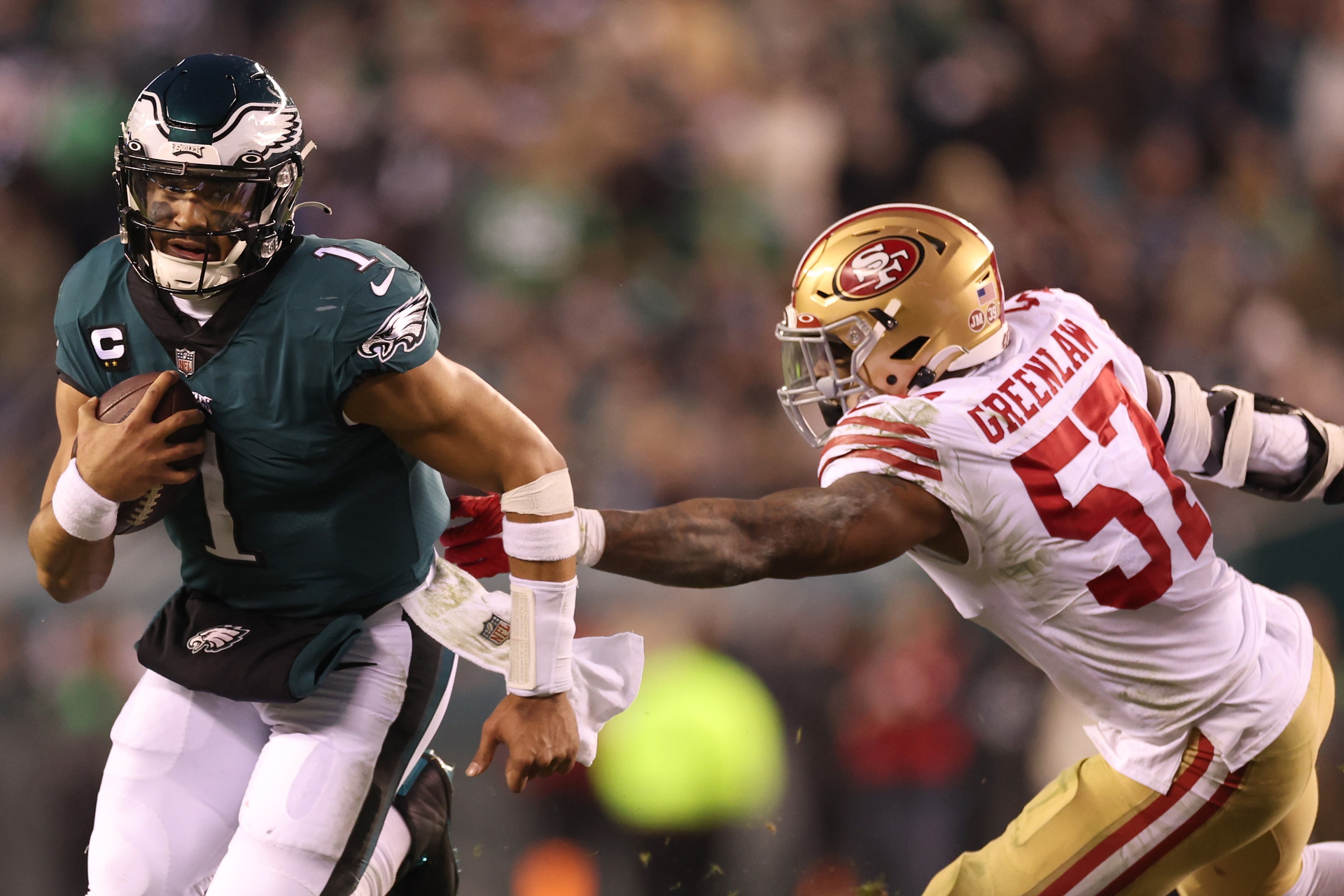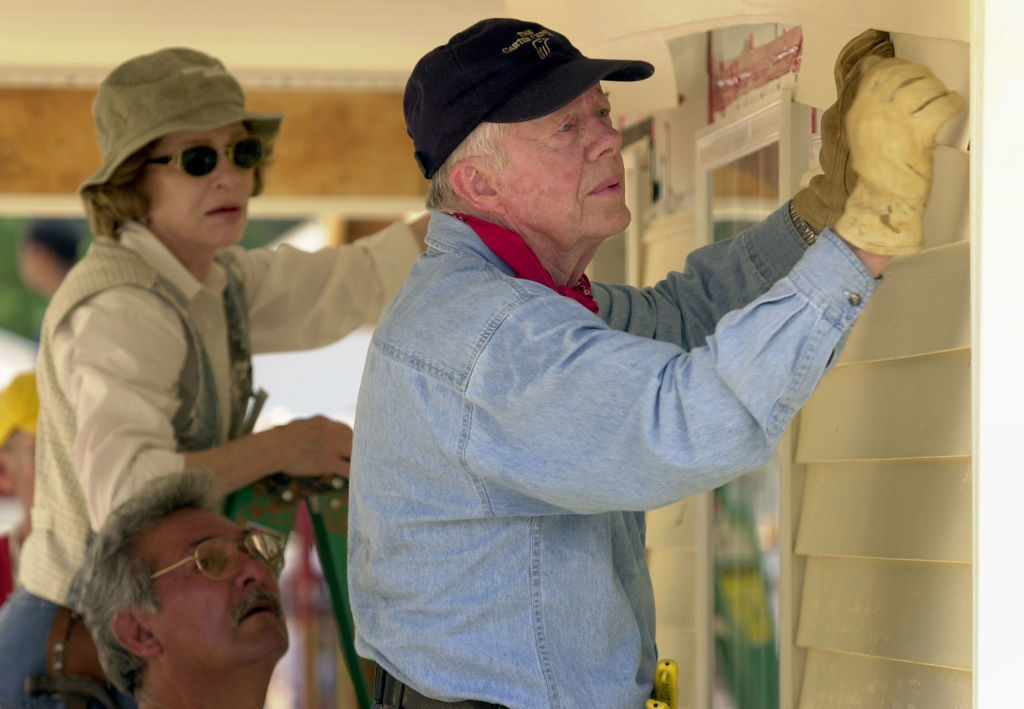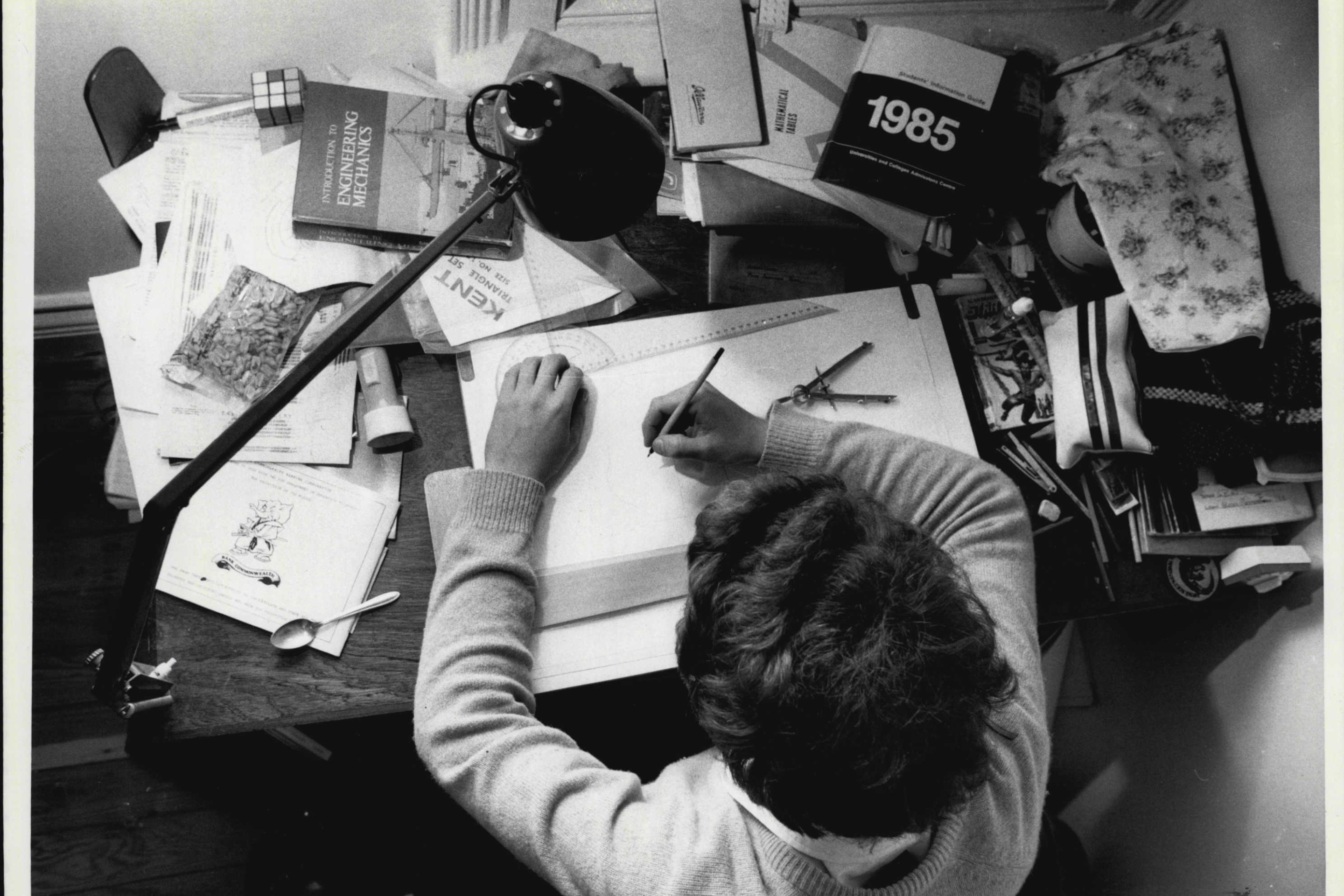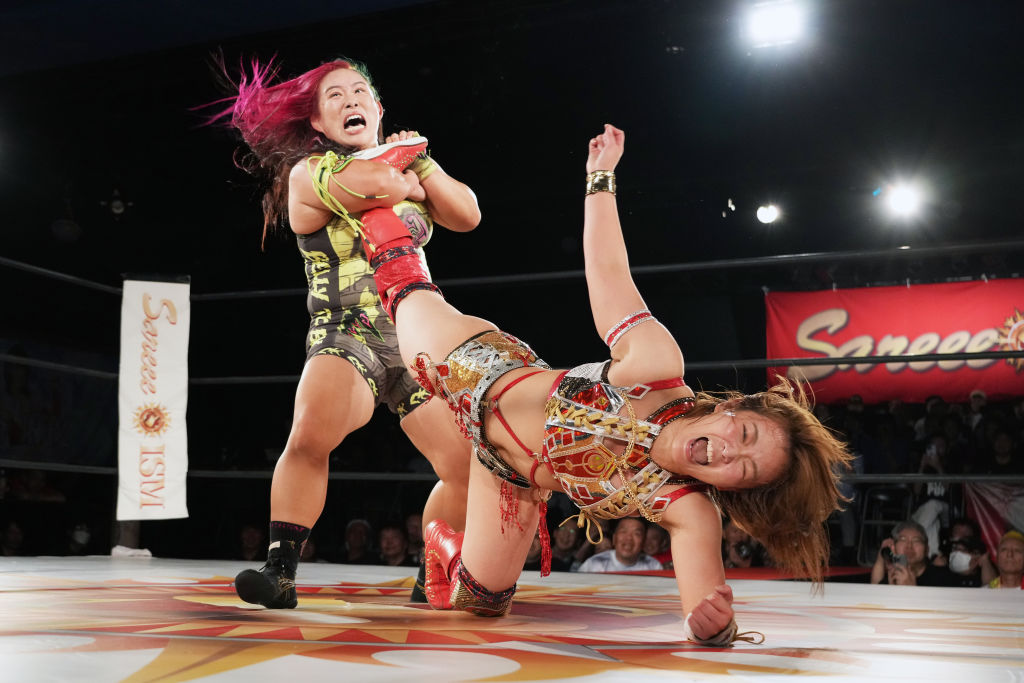The NFC Conference Championship did not end at the moment when Jalen Hurts was borne bodily across the plane for the Philadelphia Eagles' fourth rushing touchdown and first crowd-surfing score of the game. There was still the grainy dregs of the third quarter left to drain, and whatever the fourth quarter held, but also the game had ended some time before then, and had been over for some time when the clock ran out on a 31-7 win.
But when, exactly? The game began in more or less the same way as the Eagles' stomping out of the Giants in the Divisional Round, which is to say with a decisive scoring drive. But the 49ers are not the Giants, and the 11-play, 66-yard drive that got the Eagles on the board required the first of several bits of hinky officiating to keep it going; DeVonta Smith's acrobatic 29-yard catch on fourth-and-3 looked even more acrobatic but much less like a catch when seen on replay, but the Niners didn't challenge and Miles Sanders scored two plays later. The game against the Giants felt something like over after that first touchdown, but this one did not.
So: the next series, then? Brock Purdy was hit as he threw on third down and somehow managed to punch the ball ten yards down the field in a humpbacked arc; it was much easier to see how Purdy injured his elbow on the play. This left San Francisco in the hands of world-historic journeyman Josh Johnson, and heightened the challenge on what had looked like a steep but shockingly possible gambit. The 49ers had gotten this far on the strength of a brilliant and brutal defense, mostly, but also with just enough help from an offense that had been forced to prove that a team could still win without elite or even notably cromulent quarterback play. Johnson was competent enough to orchestrate, or anyway be on the field for, a game-tying scoring drive at the end of the second quarter that was mostly the result of some defiant running from Christian McCaffrey.
QUE CORRIDA SENSACIONAL DO CHRISTIAN MCCAFFREY! IMPARÁVEL! 🔥🔥🔥#NFLnaESPN #FTTB #FlyEaglesFly pic.twitter.com/EL5GEke00C
— Endzone Brasil (@Endzone_Brasil) January 29, 2023
But that was about it. From that moment on, Johnson and the rest of the 49ers were overwhelmed. Here is where it starts getting futile to figure out when this game got out of reach. The Eagles' followed McCaffrey's score with a long scoring drive of their own, and Johnson fumbled and lost the third snap of the subsequent drive deep in his own territory. That fumble is one possible endpoint. The touchdown that Boston Scott punched in three plays later to give Philadelphia a 21-7 lead at the half is another. The concussion that sent Johnson to the locker room in the third and led the Niners to replace him with an obviously hobbled Purdy felt decisive, but also excessive. As Johnson was led into the locker room, a nation muttered "okay, got it" as one. The more decisive among them lit out for the Diners, Drive-Ins, And Dives marathon on the Food Network.
Everyone that stuck around got another few endings, each of them spiraling further out into abstraction. If you like your endings more tragicomic, there was McCaffrey's overbaked pitchback pass in a fourth-quarter attempt at the wildcat offense; it sailed meaningfully into a patch of grass downfield that was completely empty of human habitation. If you like your endings more vibe-appropriate, there was the desultory brawl that followed the subsequent play, which led to two ejections and some panicked conjecture from the broadcast booth about possible Super Bowl suspensions for safety K'von Wallace, who was ejected, and any Eagles who might have left the bench for a chance to stand around acting like they wanted to fight Trent Williams. Mike Pereira did not seem especially worried about that outcome, but that's what the game was like by that point. That's what was left to discuss.
When a game has this many endings, it might be simpler to say that it never really got started. The Niners were unable to move the ball against the Eagles, regardless of who set up under center; they finished the game with just 11 first downs and fewer than 100 yards of rushing (81) and passing (83) offense. The Eagles, for their part, simply continued to look like the best team in the NFL. They spent much of the season that way, and while that doesn't necessarily mean much as the season narrows towards its end, they ground down a brilliant Niners defense that grew more and more ragged as first exhaustion and then frustration piled up.
That unlovely final score was a warning before it became it the last word on what was, in point of fact, a pretty significant letdown of a game. This was always a way that things could have gone, because the Eagles spent this year as an active threat to score 30 points against any opponent, and the Niners went the better part of three months without a loss despite an offense that always seemed to be just good enough without ever affirmatively seeming good. It seemed possible to win that way until it finally and decisively did not. That the 49ers finally ran out of heroic backup quarterbacks was, perhaps, the most fitting of all the many available endings, here, although the lesson is less "it is good to have a spare Tim Rattay or Shaun Hill on hand, just in case" than "the Eagles are really, really good."





